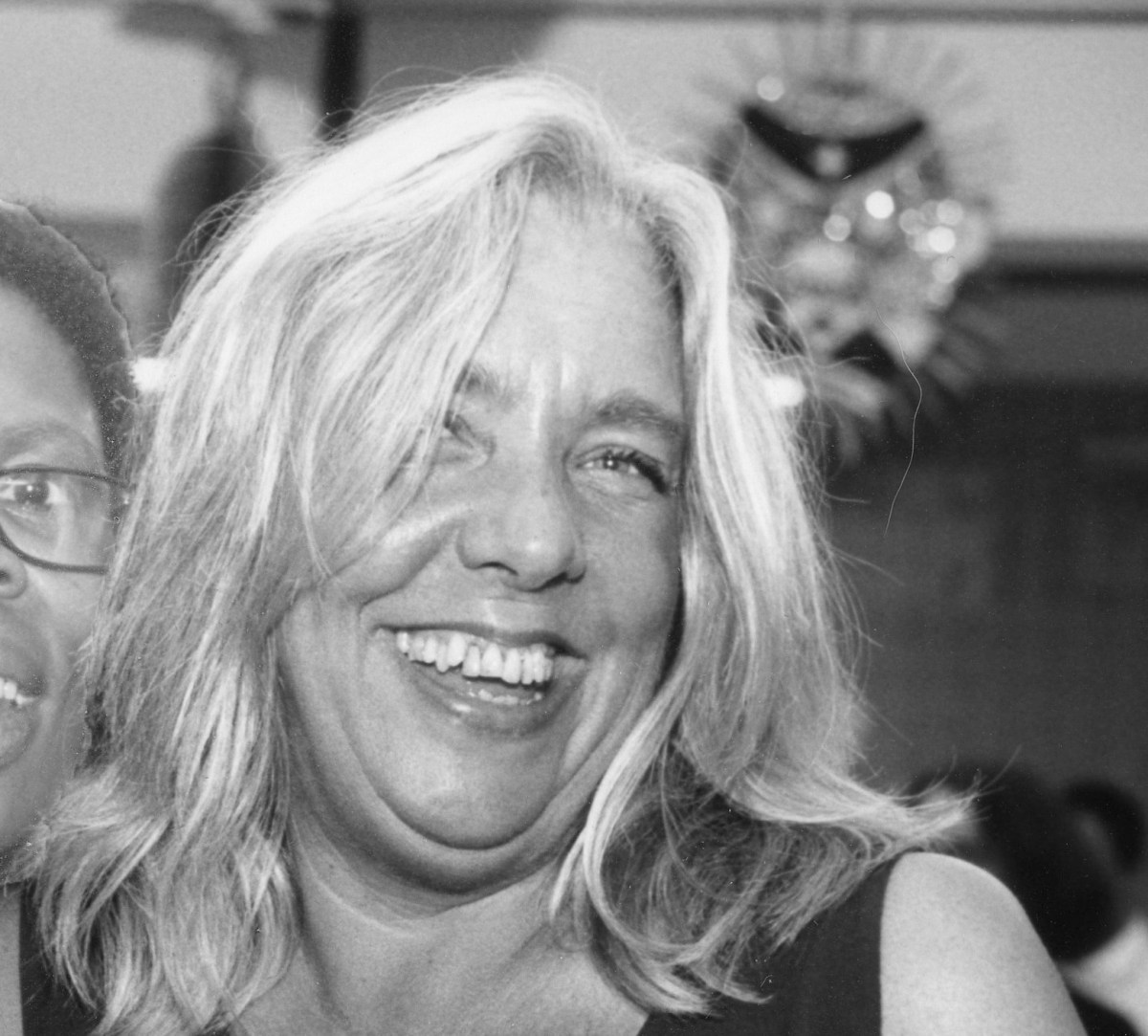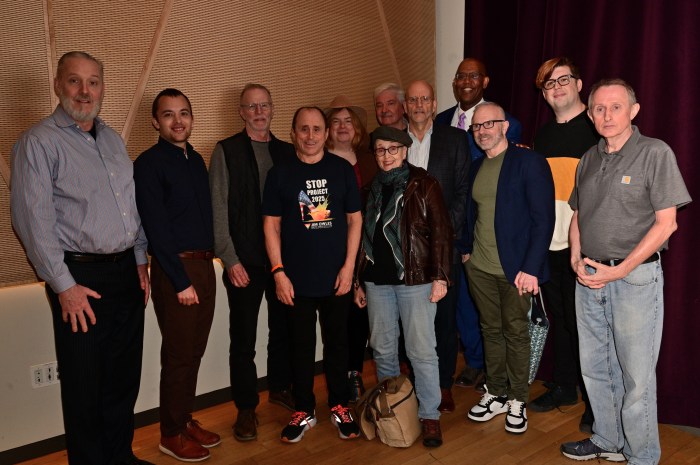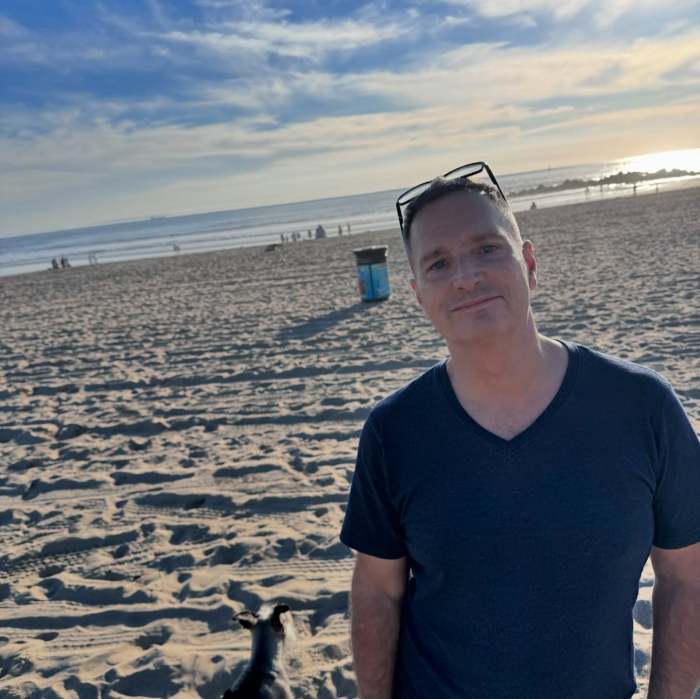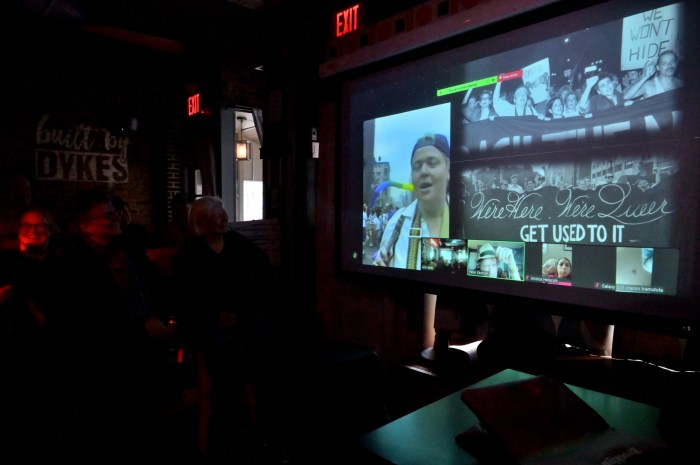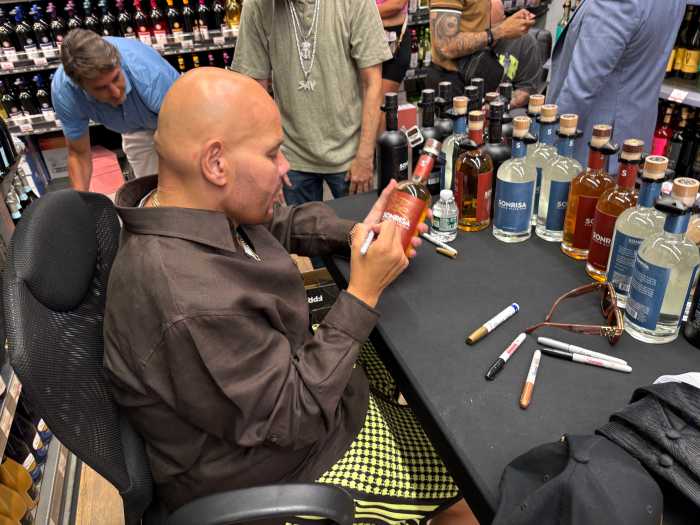Amber Hollibaugh, an out lesbian activist and organizer for the most marginalized people within the LGBTQ community, died at her Brooklyn home on Oct. 20, at the age of 77, due to sudden complications from diabetes. She is survived by her life partner, Jenifer Levin, and stepsons Mak Levin and Van De Laurier.
Speaking to Gay City News, Hollibaugh’s family and friends remembered her fondly as a loving, charismatic activist who refused to compromise on her beliefs.
“She grew up in poverty, and what she talked about the most in her political life was the possibility of hope and fighting against hopelessness as a person who was not only surrounded by poverty and the lack of dreams, but who also was queer,” said her partner, Jenifer Levin, an award-winning novelist.
Hollibaugh grew up in in the 1940s and ’50s in Bakersfield, California, where she was raised by working-class parents of Romani and Irish-American origin. She left home while she was still a teenager and went on to make a living as a sex worker and nightclub dancer through her mid-20s. She subsequently settled for a decade in San Francisco before moving to New York. She wrote about her life and socio-political views in a collection of essays titled “My Dangerous Desires: A Queer Girl Dreaming Her Way Home.”
Hollibaugh studied Marxism, and saw a deep connection between sexual, gender, class, and racial identities. At times, Levin said, she didn’t feel included in the LGBTQ movement, lying early on about being a sex worker.
“She led double lives,” Levin said. “And it was when she began to … start telling the truth about herself that she discovered … that who she was could be very dangerous, who she was could be considered an outcast. But being truthful about who she was and living without shame was absolutely crucial to her survival.”
“Her lifelong pursuit was not just intersectionality, but wholeness,” Levin said, meaning embracing one’s full sexual, political and social identity unapologetically.
In a 2012 interview with The Nation, Hollibaugh said, “I think the power of a political vision is deeply engaged with how you can live out the liberation that you seek, and part of that vision is very much about desire, is about the erotic. I did not come out to be LGBT, to not claim my sexuality at the same time. … No political movement can avoid the reality of desire in its midst.”
A life of activism
During the 1979 so-called Briggs Initiative, when conservative California lawmakers attempted to ban LGBTQ people and their allies from teaching in public schools through a statewide ballot measure, Hollibaugh traveled to small towns across the state, speaking to people, some of whom had never met an out lesbian before.
Some other achievements in Hollibaugh’s life included serving as founding director of the Lesbian Aids Project at Gay Men’s Health Crisis, and leading Queers for Economic Justice, an organization she ran for over a decade, which advocated for low-income queer people. There, she developed policies to help queer people living in shelters, Levin said. She also was hired by the Howard Brown Medical Center in Chicago to develop programs for LGBTQ seniors. She regularly appeared on panel discussions about LGBTQ issues. In 2019 she delivered a speech at the Center for LGBTQ Studies at the CUNY Graduate Center titled “Hope and Power of Desire: Our Vision for a Changing World.”
In 2012, Hollibaugh and Brandon Lacy Campos penned an article in Gay City News calling on Christine Quinn, an out lesbian and then-New York City Council speaker, to pass paid sick leave.
“She had the capacity to just sort of mobilize people with a combination of both anger and love and solidarity,” recalled John D’Emilio, an LGBTQ historian and lifelong friend of Hollibaugh. “Amber embraced the margins, you could say, and tried to make the margins the center.”
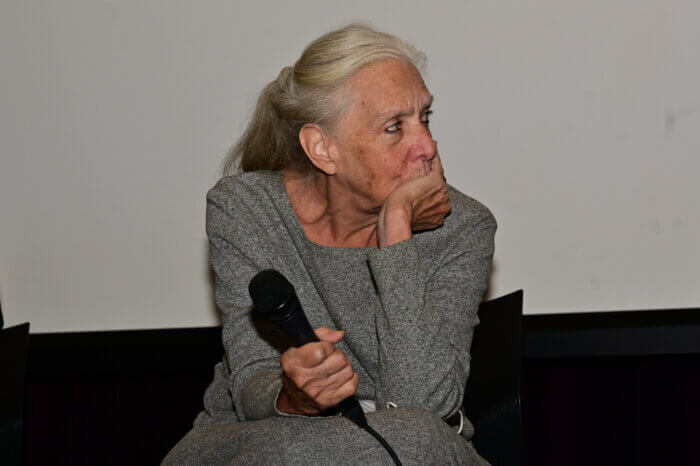
“She always fought for the fact that the most ignored and denied and excluded members of the community had to be attended to and recognized,” he said. “She just sort of pushed to go beyond middle-class white respectability.”
D’Emilio added, “Lesbian liberation was about not being womanly or femme and there was Amber openly declaring I am a femme, I love other women, and I am a radical revolutionary, not a traditionalist. In so many ways, she was always on the cutting edge.”
D’Emilio remembers Hollibaugh standing up in 1979 following the trial of Dan White — who served a five-year sentence after being convicted of manslaughter for shooting gay politician and advocate Harvey Milk and San Francisco Mayor George Moscone.
“Masses of people marched from the Castro to City Hall, for a big rally and protest,” he said.
In contrast to the other speakers who urged the crowd to remain calm, “Amber got up there and just said, ‘You have a right to be angry. This is an outrage. Show me your rage,’” D’Emilio recalled.
“Never meeting a stranger”
When she wasn’t on the streets fighting for queer liberation and economic justice, Hollibaugh loved to cook and travel. She particularly loved to make Chinese food, Levin said, and would make her vegetarian samosas.
The last time he saw her, last fall, D’Emilio remembers Hollibaugh, with the assistance of a walker, cooked lunch for him.
“When you were around her, you just felt embraced,” he said. “When she walked into a room, you couldn’t help noticing her [because she was] a forceful presence for good.”
The two of them couldn’t stop talking to each other, D’Emilio laughed. The first time they met for breakfast, they ended up spending 10 hours together, strolling from the Mission District, to the Castro, to Dolores Park.
“She was a very tender person, very wise … passionate,” Levin said.
She was also “very stubborn” and a persuasive speaker.
“She would just get up in front of a large group of people and, you know, without having any written notes,” she said, “and dazzle the crowd with insights.”
“She was one of those people that you would characterize as never meeting a stranger,” Levin said.

